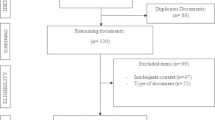Abstract
This paper is in response to the manuscript entitled “Ethical oversight of student data in learning analytics: a typology derived from a cross-continental, cross-institutional perspective” (Willis et al., Educ Technol Res Dev 64(5):881–901, 2016) from an ethical perspective. The impact of the article is that it offered a working typology of ethical approaches and aims to determine the ethical intersection of internal student data usage and application. Their review of ethical approaches included research institutions from three continents. Findings from this review have implications for applied research with student data. This is particularly interesting given the differences in ethical approaches in the United States (more utilitarian) and the European Union’s rather strict deontological approach. While learning analytics offer rich student data for personalizing educational technologies, there is associated potential for threats to autonomy and privacy. A limitation of the topology is that it did not include other people groups (e.g., Asia, South America, Australia). Future learning analytics, design, application, and research will need to consider both where the technologies were developed and where educational technologies are being applied.
Similar content being viewed by others
References
Campbell, K. (2015). The feminist instructional designer: An autoethnography. In B. Hokanson, G. Clinton, & M. W. Tracey (Eds.), The design of learning experience: Creating the future of educational technology (pp. 231–249). Cham: Springer.
Clark, A., & Chalmers, D. (1998). The extended mind. Analysis, 58(1), 7–19.
Damarin, S. K. (1994). Equity, caring, and beyond: Can feminist ethics inform educational technology? Educational Technology, 34(2), 34–39.
Ess, C. (2009). Digital media ethics. Malden, MA: Polity Press.
Fernback, J., & Papacharissi, Z. (2007). Online privacy as legal safeguard: The relationship among consumer, online portal, and privacy policies. New Media and Society, 9(5), 715–734.
Griffith, S. F., Hagan, M. B., Heymann, P., Heflin, B. H., & Bagner, D. M. (2020). Apps as learning tools: A systematic review. Pediatrics, 145(1), e20191579.
Houston, M., & Lin, L. (2012, March). Humanizing the classroom by flipping the homework versus lecture equation. In Society for information technology and teacher education international conference (pp. 1177–1182). Association for the Advancement of Computing in Education (AACE).
Hsiao, C. C., Huang, J. C., Huang, A. Y., Lu, O. H., Yin, C. J., & Yang, S. J. (2019). Exploring the effects of online learning behaviors on short-term and long-term learning outcomes in flipped classrooms. Interactive Learning Environments, 27(8), 1160–1177.
McStay, A., & Bakir, V. (2006). Privacy, online advertising and marketing techniques: The paradoxical disappearance of the user. Ethical Space: The International Journal of Communication Ethics, 3(1), 24–31.
Parsons, T. D. (2019a). Neuroethics in educational technology: Keeping the brain in mind when developing frameworks for ethical decision-making. In T. Parsons, L. Lin, & D. Cockerham (Eds.), Mind, brain, and technology: How people learn in the age of new technologies (pp. 195–210). New York: Springer.
Parsons, T. D. (2019b). Ethical challenges in digital psychology and cyberpsychology. Cambridge, MA: Cambridge University Press.
Reiner, P. B., & Nagel, S. K. (2017). Technologies of the extended mind: Defining the issues. In J. Illes & S. Hossain (Eds.), Neuroethics: Anticipating the future (pp. 108–122). Oxford: Oxford University Press.
Spector, J. M. (2005). Innovations in instructional technology: An introduction to this volume. In J. M. Spector, C. Ohrazda, A. Van Schaack, & D. A. Wiley (Eds.), Innovations in instructional technology: Essays in honor of M. David Merrill (pp. 1–2). Mahwah, NJ: Lawrence Erlbaum Associates.
Spector, J. M. (2015). Foundations of educational technology: Integrative approaches and interdisciplinary perspectives (2nd ed.). New York: Routledge.
Spector, J. M. (2016). Ethics in educational technology: Towards a framework for ethical decision making in and for the discipline. Educational Technology Research and Development, 64(5), 1003–1011.
Spector, J. M., Merrill, M. D., Elen, J., & Bishop, M. J. (Eds.). (2013). Handbook of research on educational communications and technology (4th ed.). New York: Springer.
Willis, J. E., Slade, S., & Prinsloo, P. (2016). Ethical oversight of student data in learning analytics: A typology derived from a cross-continental, cross-institutional perspective. Educational Technology Research and Development, 64(5), 881–901.
Author information
Authors and Affiliations
Corresponding author
Ethics declarations
Conflict of interest
No conflicts of interest.
Ethical approval
No research involving human participants and/or animals.
Informed consent
Informed consent is not applicable for this review.
Additional information
Publisher's Note
Springer Nature remains neutral with regard to jurisdictional claims in published maps and institutional affiliations.
Rights and permissions
About this article
Cite this article
Parsons, T.D. Ethics and educational technologies. Education Tech Research Dev 69, 335–338 (2021). https://doi.org/10.1007/s11423-020-09846-6
Accepted:
Published:
Issue Date:
DOI: https://doi.org/10.1007/s11423-020-09846-6




